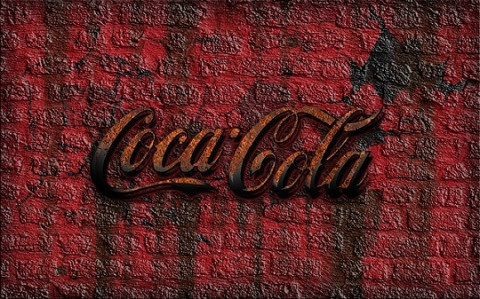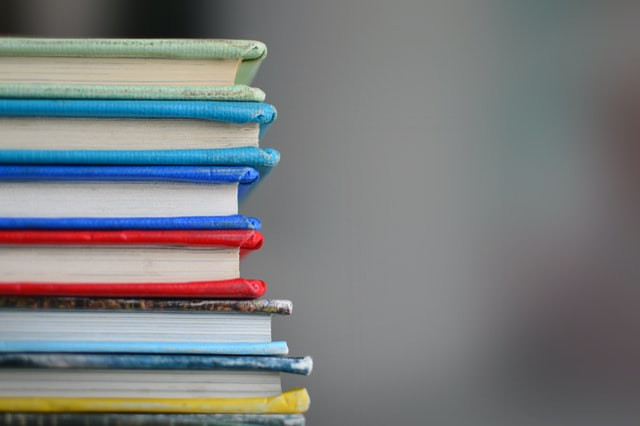
14 min
1
10.04.2022

Studying at school, college, or university, you always deal with various written assignments.
- The Non-Fiction Report Definition
- What Should Your Non-fiction Report Consist Of:
- Points Of Description
- Points Of Evaluation
- What Is Nonfiction Literature?
- Features Of Nonfiction Literature
- Essential Academic Genres of Nonfiction Books
- Nonfiction Writing: 4 Main Types
- List of The Best Nonfiction Books To Choose From
They are necessary regardless of your major since they help you to develop some essential skills. When writing, people learn to formulate things correctly, share their point of view, build persuasive arguments, etc. Besides, depending on the assignment’s type, it is also essential to find the information, check facts, analyze data, and draw up the whole document according to your educational institution’s preferences.
One of the most popular written tasks is a book report. It consists of two parts. Firstly you need to read the book, and then your mission is to provide a review, summarizing the main points. It is a bit different from the typical review paper since students concentrate not on their personal opinions only, but on some details like the plot, characters, or main concepts, when it goes to the nonfiction book report.
The Non-Fiction Report Definition
It is a kind of book report when your task is to write about a nonfiction book. Many genres are depending on the discipline you study and the requirements of the particular instructor. You may read historic literature, philosophy pieces, self-help books, books about science, space, famous people, and so on.
A nonfiction report is a paper intended to share your view about the text. Of course, you won’t write about the characters (until you have them), the plot, various literary devices, etc. Your task is to analyze the book, its ideas, and its contribution.
You shouldn’t worry if you don’t know how to write a book report. Nobody was born with the talent to complete this task successfully. If you desire to impress your professor and get a good grade, we can support you along this way. Follow our recommendations to write a decent paper with ease.
How Do You Write a Nonfiction Book Report?
The writing process, in this case, is not so different from other student assignments. There are some professional tips from our authors:
- Get clear what is your final goal. Of course, you want to come up with an A-level paper. But it is not that goal. You need to understand what you want to provide your audience with. What are the thoughts and feelings you want to evoke in them? Is it a paper to inspire or to guide? Knowing your goals, you will make the whole process much more comfortable.
- Draft an outline. It is vital to have a plan with all paragraphs and ideas to write about. Define all sections, come up with titles for them, and make sure you have enough information to fill the space. If some of your thoughts are good, but they don’t suit the goal and the structure, get rid of them.
- Write the first draft. Don’t overthink about the quality of the text right now. You’ll have time to polish it. You may think you don’t know how to start writing a book report, but once you start, you’ll catch the flow.
What Should Your Non-fiction Report Consist Of:
If you were assigned a non-fiction book report writing, you can’t just look at the 5th-grade book report sample, and follow its structure. This task is one level higher since you need to demonstrate your research and analytical skills. In most cases, there is no place for creativity.
The very first thing you should do is read your requirements carefully. Sometimes students think that the task is too complicated and postpone the writing until the last day. Or they believe they know exactly what to do and find themselves with bad grades because the task was pretty different. Don’t reinvent the wheel, just try to understand what your professor expects of you.
Summarize And Evaluate
Your task is to describe the piece, define the essential points, and provide your evaluation and judgment. It is essential to include:
Description:
- basic information about the writer;
- background of the book creation;
- author’s purposes;
- writer’s thesis statement;
- the book structure;
- your summary.
Evaluation:
- positive and negative reviews;
- contribution;
- strengths and weaknesses.
You may omit some of these points if necessary, change their order, add some more details, etc. Look for a good book review example to find inspiration, see what techniques other students use, and analyze the books. But remember that you shouldn’t just copy someone’s paper. It is better to spend more time and come up with a unique piece or order a report written from scratch exclusively for you.
Points Of Description
You can find information about the writer on the cover of a book or the Internet. The background to the creation of this piece is often described in the preface. You will most likely need to do a little research to determine if the author is really an expert in this area and how fully one can judge this topic.
After reading the introduction, you will immediately understand what goal the author set for himself. And as soon as you finish reading and analyze the text, you will realize whether one managed to achieve this. The introduction of a good book report also contains a thesis statement and main ideas. Please note that simply copying or paraphrasing them is considered plagiarism. You need to highlight this information yourself after reading and explain it in your own words.
Writing a book summary also depends on your audience. Perhaps you are writing only for the professor who commissioned this text to you and is familiar with it. Or is your task to provide a summary for those who can't decide whether to read a piece? That’s why we’ve told you that you should know your goals before you start writing.
Points Of Evaluation
To evaluate the book, you may look for some reviews, articles, other students’ reports, etc. It is crucial to understand whether your point of view is standard or you have unique thoughts. You may find out that you’ve missed some vital information, skipped a critical angle to look from. Or that you haven’t understood the author the way one wanted you to.
Writing about the contribution, it is important to provide evidence. For example, if you think that The Miracle Morning by Hal Elrod helped people to appreciate morning hours and plan their days more efficiently, make sure you have some stats, or at least reviews to prove it. If you think that the author has used incorrect or false information, you should be able to protect your position as well.
Depending on the requirements, you may also write about your feelings about the book. Was it inspirational? Have you enjoyed the reading? Would you advise it and to what people?
What Is Nonfiction Literature?
It is a literary genre that is based on facts. It is the broadest category that includes a lot of sub-genres about everything that surrounds us. Whether it is a piece about pets, learning languages, religious beliefs, music artists, it is nonfiction. Of course, in most colleges, you won’t read the book about successful fishing receipts or secrets. You’ll have a particular book report template to follow. Below you’ll find the most popular
How to Distinguish Fiction And Nonfiction?
When it comes to differences between these two types, it is easier to start with a fiction explanation. Fiction books are fabricated; they are based on the creator’s imagination. Whether it is a fairy tale, a legend, a short story, or a novel, it describes some world and people that don’t exist. Such pieces have a setting, plot, characters. They may be based on real-life events, but they are just a background to create fiction.
On the contrary, nonfiction is always real. It may be about the past, present, or the prospective future. The scene is our planet, the characters are real people. Most nonfiction books are created by researchers, scientists, people who are experts in their fields.
Many famous people have written their books, whether it is an autobiography, a scientific document, or an instruction with actionable tips.
Features Of Nonfiction Literature
It is easy to define the nonfiction book since it has precise characteristics:
- All events and heroes are real;
- The author writes about oneself, one’s experience, or one’s position;
- There are facts and evidence to support them;
- The piece has a concrete genre and a clear structure;
- It contains some personal thoughts, ideas, insights, advice.
- The author writes for a particular audience.
Essential Academic Genres of Nonfiction Books
We have already mentioned that there are several genres. There are 5 of them you may consider choosing a book for your report.
Memoir
It is a historical text based on personal knowledge and experience. Remember Eat Pray Love by Elizabeth Gilbert? It is a classic example of a memoir.
Autobiography
This genre has similarities with the previous one because the author of the book is at the same time its object. However, suppose the memoirs tell about some significant events or periods in a person's life. In that case, the autobiography covers all years of experience, from childhood to death (or the present, if the author is still alive). Long Walk to Freedom by Nelson Mandela or I am Malala by Malala Yousafzai, are autobiographies.
Biography
Another sub-genre of non-fiction that involves describing someone's life. In this case, the object of the book is not the author, but some famous person.
Often, one person has several biographies. You can find several books only about Barack Obama. The point is not in some events that you can learn in Wikipedia but in the author's unique view who decided to write a biography.
Expository
Expository literature's task is to describe some important events, show different views, and deeply understand the subject. Civil War Love Stories by Gill Paul is a good example.
Self-help
Once you enter any book store, you’ll see many self-help books among the bestsellers. They are the most popular pieces these days since everyone encounters challenges and needs to improve life. There are also various sub-genres, e.g., books about business, health, meditations, personal finances, communication, etc. The great examples are The 7 Habits of Highly Effective People by Stephen R. Covey or Zero to One by Peter Thiel.
Popular Science
The purpose of this literature type is to help people discover the wonderful world of science. If you don't have boring textbooks about medicine, space, animals, popular science nonfiction books may become the best choice for you. As an example, Black Hole Blues: And Other Songs From Outer Space by Janna Levin, or The Brain: The Story of You by David Eagleman.
Nonfiction Writing: 4 Main Types
Writing a book report, it is crucial to define the type of nonfiction the author has used. It directly connects with one’s goals, for example, when the writer wants to explain something, one uses explanatory writing. When he or she has solid arguments to provide, it is persuasive writing. Let’s delve a bit deeper.
Narrative Writing
It is the type that is common for biographies, autobiographies, memoir. The creator wants to describe some person or events, to share new information, or to present different facts from the other angle.
When you need to develop a paper on narrative nonfiction, it is the most simple book report format. You shouldn’t look for some hidden senses, to think whether the author was convincing enough, etc. Your task is to analyze the provided information and create a paper with a summary and personal opinion.
Explanatory Writing
This type of writing is used when you are dealing with paper, the task of which is to explain some information. The author needs to establish a dialogue with the audience, show why certain events are essential, and what angle they should be viewed.
Explanatory writing sets out some facts and provides the author's conclusion about them. For example, you can find literature about the Big Bang, where different people explain its influence on the creation of the Universe in different ways, as well as discoveries that confirm (or, conversely, refute) this theory.
Persuasive Writing
The persuasive type is when the author has a concrete point of view and wants to convince readers that it is the right position. For example, one thinks that there were specific causes and consequences of the Civil War. That’s why you may find different books with facts about a particular event that don’t match each other. Of course, you're a regular student and may now know whether the writer is 100% true. What you can do is to explain whether one’s arguments are good enough, whether different authoritative sources support them, what is the official position (when it goes about some political or historical issues), and what do you personally think on this topic.
Instructive Writing
It is about such books as The Subtle Art of Not Giving a F*ck by Mark Manson, or The Defining Decade: Why Your Twenties Matter by Meg Jay. The pieces, where the authors are (or find themselves) experts, provide the results of their observations and research. For example, they are psychologists who have been working with patients for decades and know how to help people in different situations. Or they are successful businessmen and businesswomen with wins and losses and understanding how to invest money.
Writing your report, you should provide a summary, main ideas, and analysis of the piece. You may even try to follow some advice and share your experience: whether the instruction was beneficial.
List of The Best Nonfiction Books To Choose From
- The Woman Warrior by Maxine Hong Kingston;
- The Liars’ Club by Mary Karr;
- Dreams From My Father by Barack Obama;
- The Autobiography of Benjamin Franklin;
- Chronicles, Vol 1 by Bob Dylan;
- Autobiography of Mark Twain;
- A Beautiful Mind by Sylvia Nasar;
- Frida: A Biography of Frida Kahlo by Hayden Herrera;
- Napoleon: A Life by Andrew Roberts;
- Titanic by Simon Adams;
- If You Lived When Women Won Their Rights by Anne Kamma;
- All About America: Colonists and Independence by Sally Senzell Isaacs;
- Ocean Life: Tide Pool Creatures by Alice Leonhardt;
- Fooled by Randomness: The Hidden Role of Chance in Life and in the Markets by Nassim Nicholas Taleb;
- Eat That Frog!: 21 Great Ways to Stop Procrastinating and Get More Done in Less Time by Brian Tracy;
- Think and Grow Rich by Napoleon Hill
- How to Win Friends and Influence People by Dale Carnegie;
- The 48 Laws of Power by Robert Greene;
- Thinking, Fast and Slow by Daniel Kahneman.
- The Twilight Saga by Stephenie Meyer - it's a joke)



